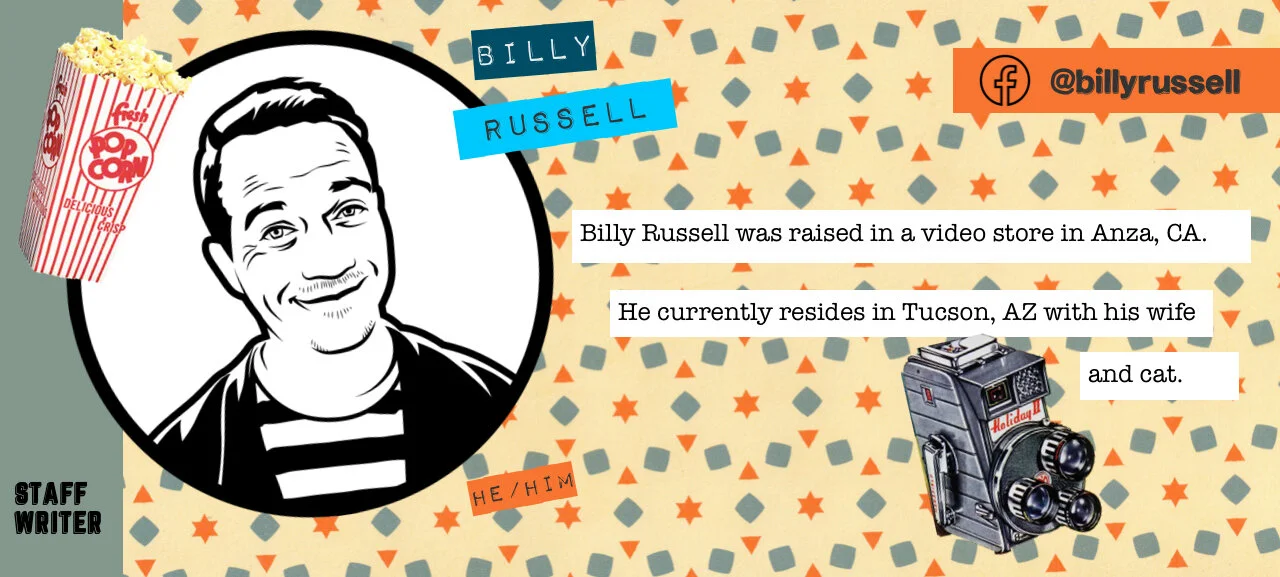Sundance '93 Flashback: EL MARIACHI endures as a low budget masterpiece
This week, we thought we’d celebrate 30 years since the 1993 Sundance Film Festival, considered one of the defining moments in modern indie filmmaking.
by Billy Russell
Sundance ‘93 poster
The story behind the making of El Mariachi is the stuff of legend. Robert Rodriguez, who at this point has gotten some attention as an imaginative crafter of short films after Bedhead hit the festival circuit, he turned his attention to feature length filmmaking. This, he believed, was the only way to really, truly make his mark.
Armed with a single 16mm movie camera and just $7,000 he’d scraped together by participating in medical studies, he began to shoot El Mariachi with the intention of making a profit by selling it to the direct-to-video action movie market in Mexico. Fate, however, had different plans and it wound up premiering at the Sundance Film Festival, was purchased by a major Hollywood studio, and launched a career in A-list filmmaking.
You can read all about the production history of El Mariachi in Rodriguez’s excellent book, Rebel Without a Crew. It’s fascinating stuff, and is pretty much required reading for anyone interested in the process and craft of filmmaking, without anything resembling a budget. His “Ten-Minute Film School” featurette on the DVD also goes through some of his practical advice, with behind-the-scenes footage and outtakes that give a real inside look on how the sausage was made.
El Mariachi sounds like the kind of movie that wowed people solely because it was shot for such a low budget. “$7,000?! How is that even possible!” It makes the entire backstory sound like a gimmick. But, El Mariachi is so much more than that, and delivers on every front it sets out to accomplish.
In Rebel Without a Crew, Rodriguez seems flummoxed that Columbia wanted to release El Mariachi, and not just give him a budget to remake it. He was even further amazed that when Desperado came around, they still had no interest in remaking it, but rather wanted a sequel to it. Robert Rodriguez was, I think, too close to his own project. He made it as an audition reel of sorts, and I don’t think he realizes how goddamn good it is, and I still believe, all these years later, it’s his finest film.
That’s not to say Rodriguez hasn’t made good movies since. He has. Yes, his quality of output has been all over the place, with highs, lows and everything in between, but he’s made some terrific films. Hell, I’d say the entirety of the Mariachi trilogy (El Mariachi, Desperado and Once Upon a Time in Mexico) is excellent. I think “Roadracers,” his entry to Showtime’s Rebel Highway–a showcase for directors to play with the conventions of 1950s cinema–is by far the best the series had to offer. The Faculty is a fun little 90s sci-fi/horror movie. And I liked Alita more than most, it seems.
But El Mariachi has an impossible-to-replicate energy. It has a ferocity to it that’s so earnest and real. The tricks Rodriguez had up his sleeve to pull this movie off on such a low budget show such an inherent, almost preternatural understanding of filmmaking as a language.
The story itself is simplicity itself: An out-of-work musician drifting from town to town in search of bars and saloons in need of a guitar player has his identity confused with a man who carts around a guitar case full of weapons. Our titular mariachi is on the run from gangsters and criminals who believe he is the assassin they’ve been gunning after.
Our mariachi must now fight for his life if he wants to survive. Along the way, he finds time for some love, some music and plenty of mistaken-identity shenanigans. Bullets fly, there are some pretty impressive stunts for such a low budget (high shutter speeds and zoom lens make the stunts look more dangerous than they actually are), and the excitement mounts and mounts until the very end. There are tender moments, too, with real heart, as the mariachi falls in love with Domino, the proprietress of the hotel he’s staying at.
Beyond its technical aspects, El Mariachi is surprisingly refined in its writing and performances, too. The writing isn’t “great” and the performances vary from “pretty damn good” to “better than you’d expect for a cast of non-professionals” but these elements are much better than the movie needs. Rodriguez makes the movie as good as possible, to show what he’s capable of, so he has a lot to prove.
El Mariachi is a masterpiece of low-budget filmmaking, and it doesn’t get much lower than this–although the movie Primer was made with an identical budget, Shane Carruth shouting out El Mariachi as his inspiration for knowing what was possible. With filmmaking costs lower than ever before, with inexpensive digital cameras capable of filmic replication, movies like El Mariachi are still just as impressive as before. Because it’s not just the technical skill, it’s the energy. It’s the passion. It’s how the story is told.



